Navigating Portugal’s Douro Valley: What to Know Before You Go
Visiting Douro Valley in the near future? Knowing Portuguese culture is a must for a smooth and enjoyable trip. Here are some essential tips to keep in mind before you embark on your journey.
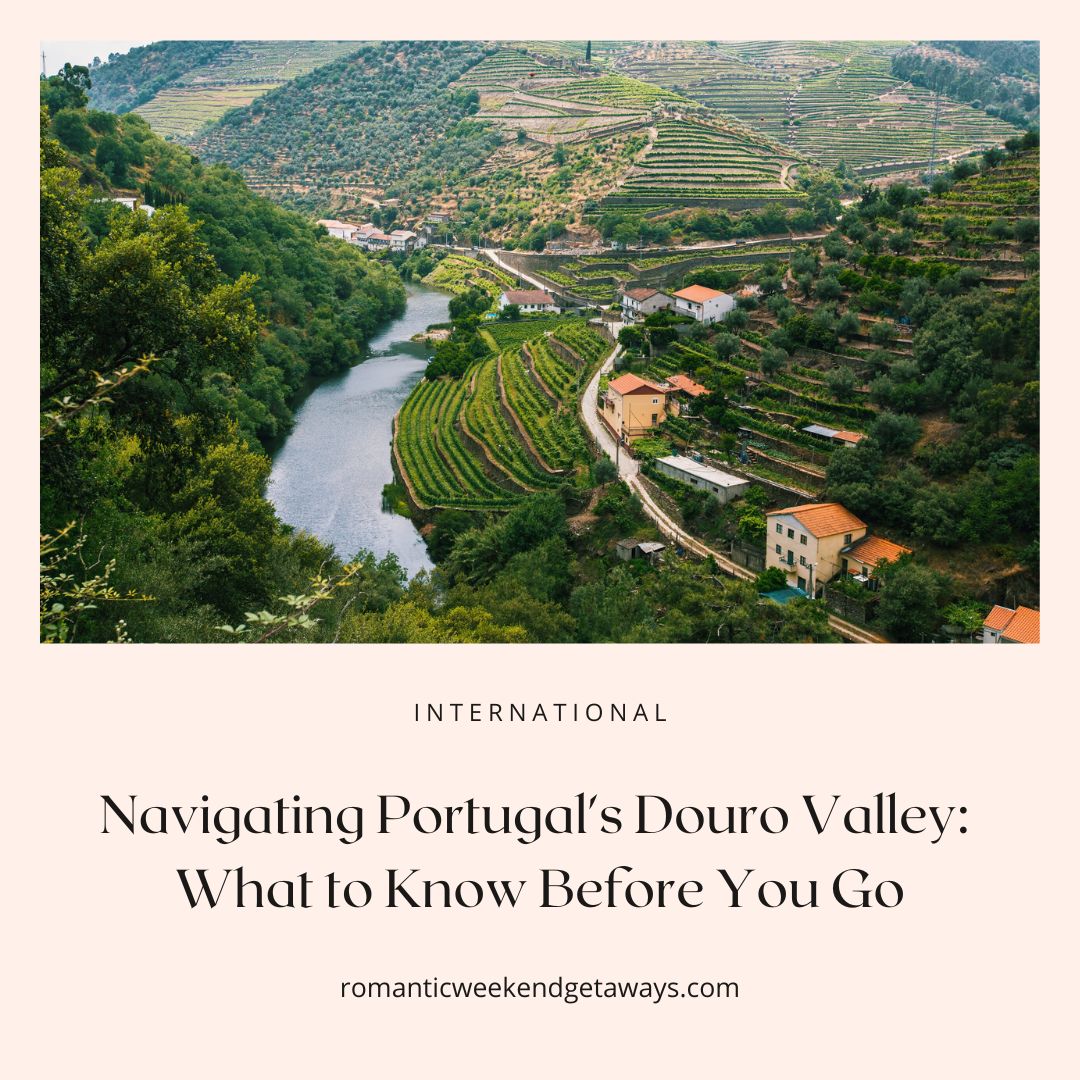
As a mindful traveler like yourself, you want to avoid as many hiccups as you can during your getaway in the Douro Valley.
That’s why you should get advice from people who’ve actually visited this wonderful land in the heart of Portugal. From deeply rooted historical significance to basic cultural etiquette, we’ll cover everything you need to know about the Douro Valley so you can make the absolute most of it.
The heart of Portugal, the Douro Valley, is a couple’s paradise. It’s a special place known for its rich history, stunning landscapes, and, of course, its world-renowned wine. If you and your partner are planning a trip to explore this incredible land, learning how to navigate the cultural landscape will make your trip even more unforgettable!
And if you need help planning your itinerary, check out Porto to Douro Valley: A Detailed Itinerary of our River Cruise with CroisiCruise. Not sure what to pack? We’ve got The Ultimate Packing List for Your River Cruise. Whatever you need to know about the breathtaking Douro Valley, we’ve got you covered.

In This Article:
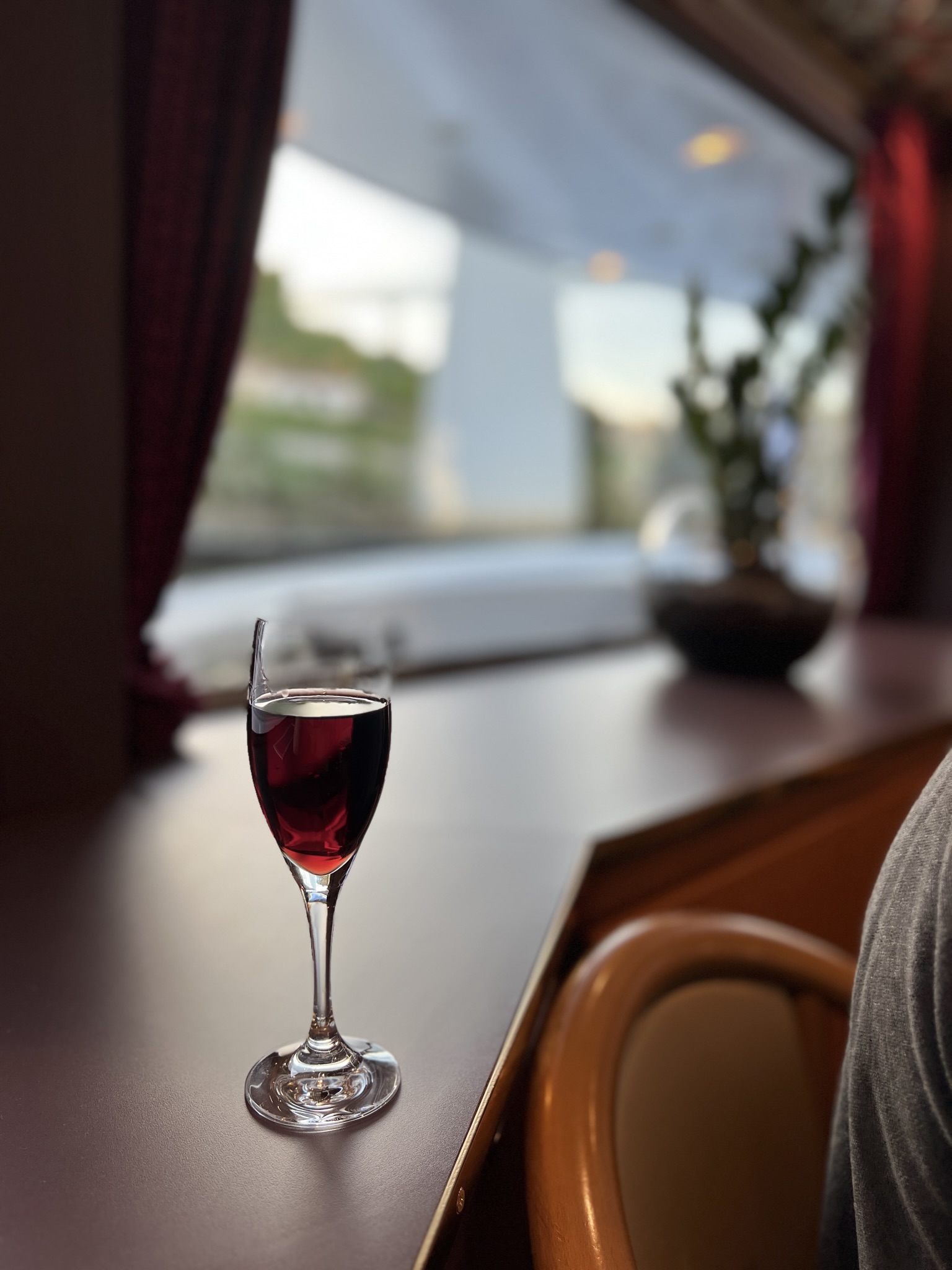
The Allure of Douro Valley
Nestled between the mountain ranges of Marão and Montemuro, Douro Valley is a region in Portugal that follows the winding path of the Douro River. Couples from all walks of life are drawn to this area for its exquisite wine and gorgeous scenery – think glistening river bends, lush vineyards, and charming towns. It’s a top spot for wine lovers and nature junkies alike!
While the Douro Valley welcomes tourists with open arms, it’s important to recognize its historical significance and the local community rooted there. Since Roman times, the locals have cultivated the land, harvested grapes, and produced wine, making the Douro Valley one of the oldest wine regions in the world. To truly appreciate and respect this extraordinary place, it’s essential to learn about Portuguese culture, history, and customs before your visit.
If you aren’t sure where to start, this Douro Valley Guide will give you all the Portugal travel tips you need to understand Portugal’s customs and etiquette as well as the history and culture that you can look forward to immersing yourself in when you arrive.
And for the newbies, check out our article: Do’s and Don’ts on a River Cruise: Helpful Tips for New Cruisers.
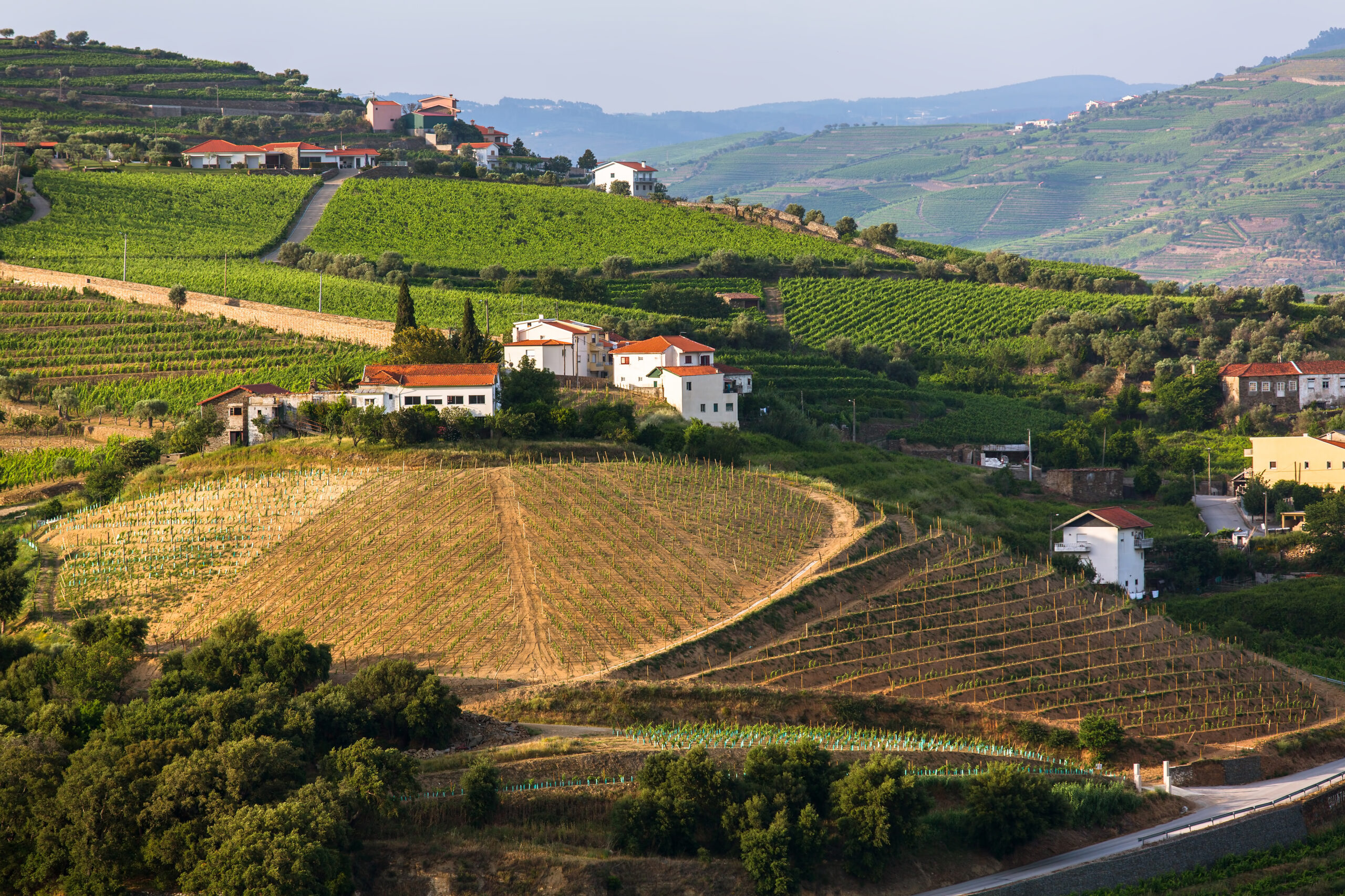
Understanding the Portuguese Culture, History, and Geography of the Douro Valley
The Douro’s Key Historical Events
The Douro Valley has a rich and fascinating history that goes back as far as 25,000 years. Its wine culture is deeply rooted in Roman and Celtic times and became a significant source of revenue in the 18th century when Port wine exports began.
Apart from the wine, the Douro Valley was a hot spot for trade and commerce and was a home for various civilizations. It served as a trading route during the Roman Empire and was later invaded by the Moors in the 8th century. In the 12th century, Portugal gained independence from Moorish rule, and during the Age of Discovery in the 15th and 16th centuries, Portuguese explorers used the Douro River to set sail on their voyages.
Today, the Douro Valley is a UNESCO World Heritage Site and has been recognized for its ancient cultural heritage, which combines the region’s natural beauty with centuries-old wine production techniques. Travelers can still see remnants of the region’s past, from Roman ruins to medieval castles and monasteries, making it a truly unique destination.
Cultural Identity
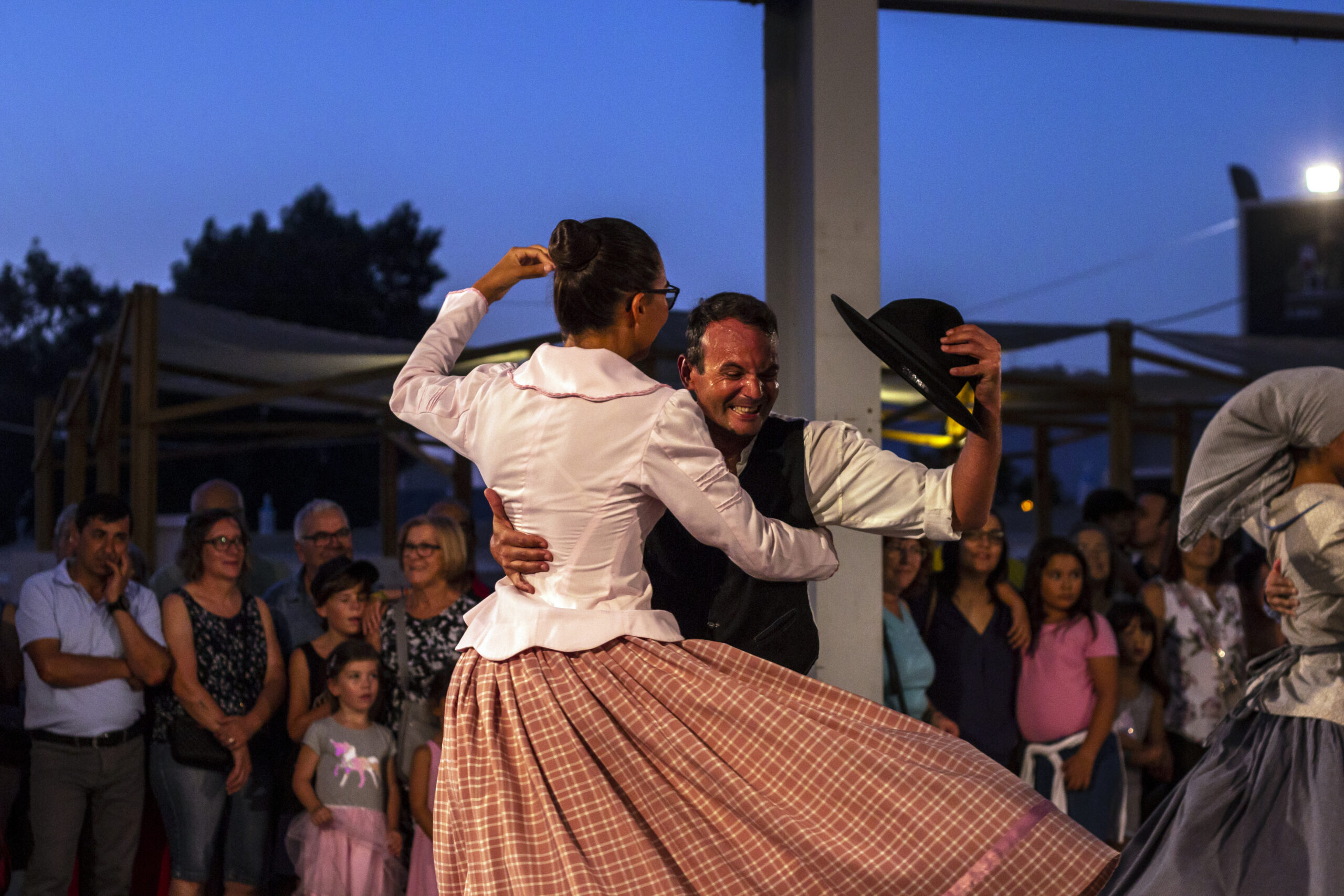
The Portuguese culture prides its traditions, and the Douro Valley is no exception. The region’s strong agricultural heritage and wine production are integral to its cultural identity. You will see locals cultivating grapes, olives, almonds, and other fruits in the terraced vineyards that line the Douro River.
The community also celebrates religious festivals and traditional events, such as the Grape Harvest Festival and the Festival of St. John, which showcase Portuguese music, dance performances, and traditional dishes.
- Music: Traditional music in the Douro Valley is a mix of Portuguese and Celtic influences. Fado is the most notable, a type of folk music with lyric poetry and mournful tunes involving guitar and vocals.
- Dance: Dance is an artistic expression that comes second nature to the Portuguese! The traditional dance, Vira, is an upbeat partner dance that really shows the lively and cheerful nature of the region’s people.
- Cuisine: Portuguese food is known for its hearty and flavorful dishes, influenced by both Mediterranean and Atlantic cuisine. Traditional meals include Francesinha (a sandwich with several meats, cheese, and a spicy sauce), Cozido à Portuguesa (meat and vegetable stew), and Bacalhau (salted codfish).
- Dress: Many Portuguese wear traditional clothing for special occasions, such as weddings and religious festivals. These outfits typically include vibrantly colored embroidered blouses and skirts for women and black hats, vests, and capes for men.
- Art and Handicrafts: The Douro Valley is also known for its pottery, shoe, and basket-making industries. These traditional handicrafts are still practiced by local artisans and can be found in markets and shops throughout the region.
- Other Quirks: Football (soccer) is the most popular sport in the Douro Valley, and you’ll see many locals playing in local parks or cheering on their favorite teams. The region also has a rich history of shipbuilding, and you can still see traditional wooden boats sailing along the Douro River!

Most important tip: When exploring a country with cultural differences, always keep an open mind and be respectful of the local customs and traditions. Embrace the uniqueness of the Portuguese culture, and you’ll have a much richer and more fulfilling travel experience!
Geography & Travel Options
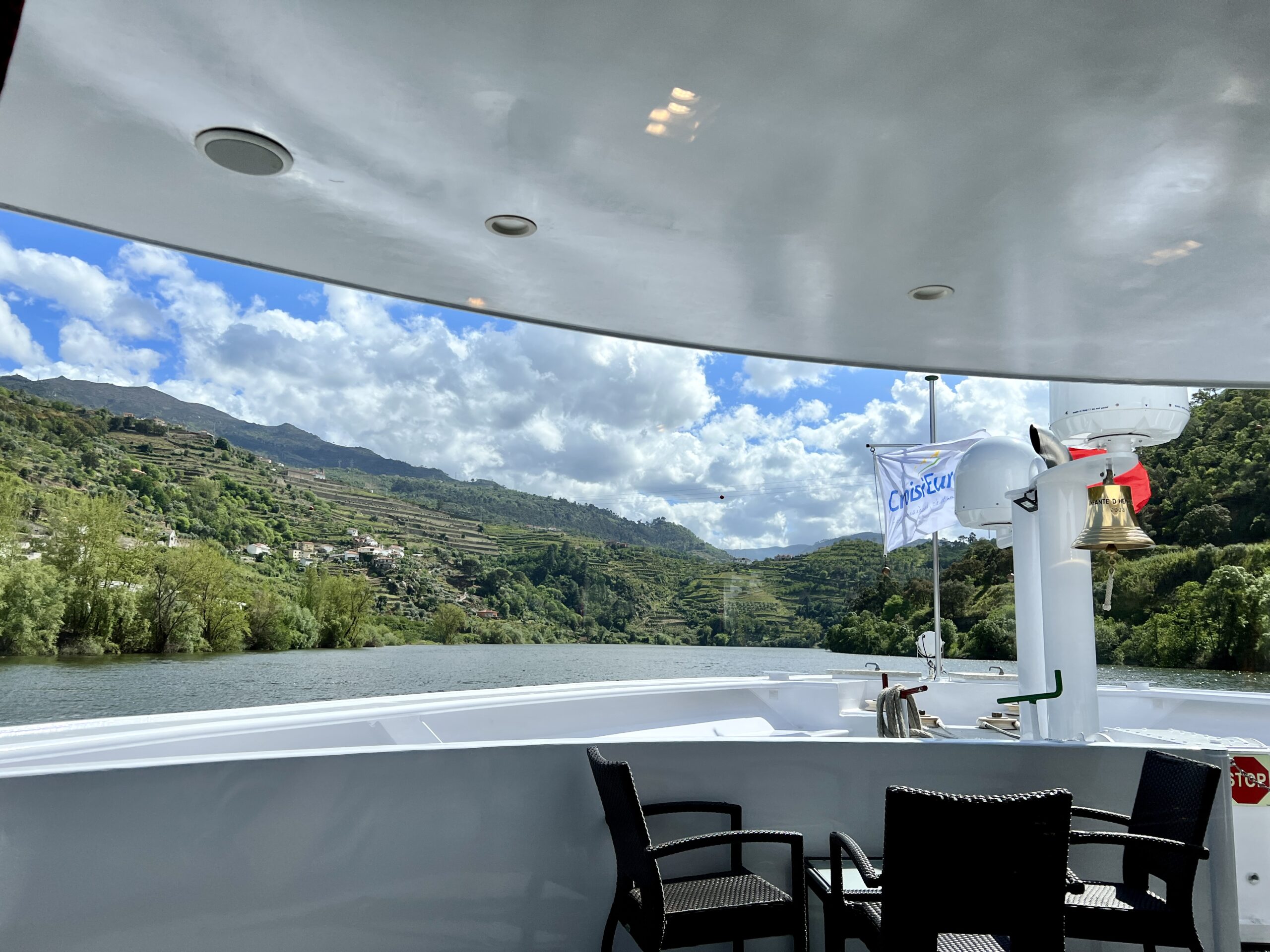
The Douro Valley consists mostly of rural areas, with rolling hills and lush vineyards that go as far as the eye can see. So, if you and your partner are looking to slow down the pace and enjoy a peaceful, romantic vacation, you’re in for a real treat!
There are several ways to explore the Douro Valley, depending on your travel preferences and budget. The most romantic? A river cruise! We booked ours through CroisiCruise, and it was an experience we’ll never forget. Unlike an ocean cruise, river cruises are smaller, more intimate, and offer breathtaking views of the countryside that you won’t get anywhere else.
An all-inclusive experience, the CroisiCruise provides all meals and drinks — its refined French cuisine is out of this world! We went on the Hike in Porto, the Douro Valley, and Salamanca cruise. It offers a wide selection of onboard activities and daily excursions you can customize to your activity level and interests. It’s the perfect balance of adventure, luxury, and free time to do whatever you desire.
The sailor life not for you? You can still enjoy the stunning views of the Douro River by taking a train ride along its banks or renting a car and driving through the valley. Whichever mode of transportation you choose, you and your love will have an absolute blast!
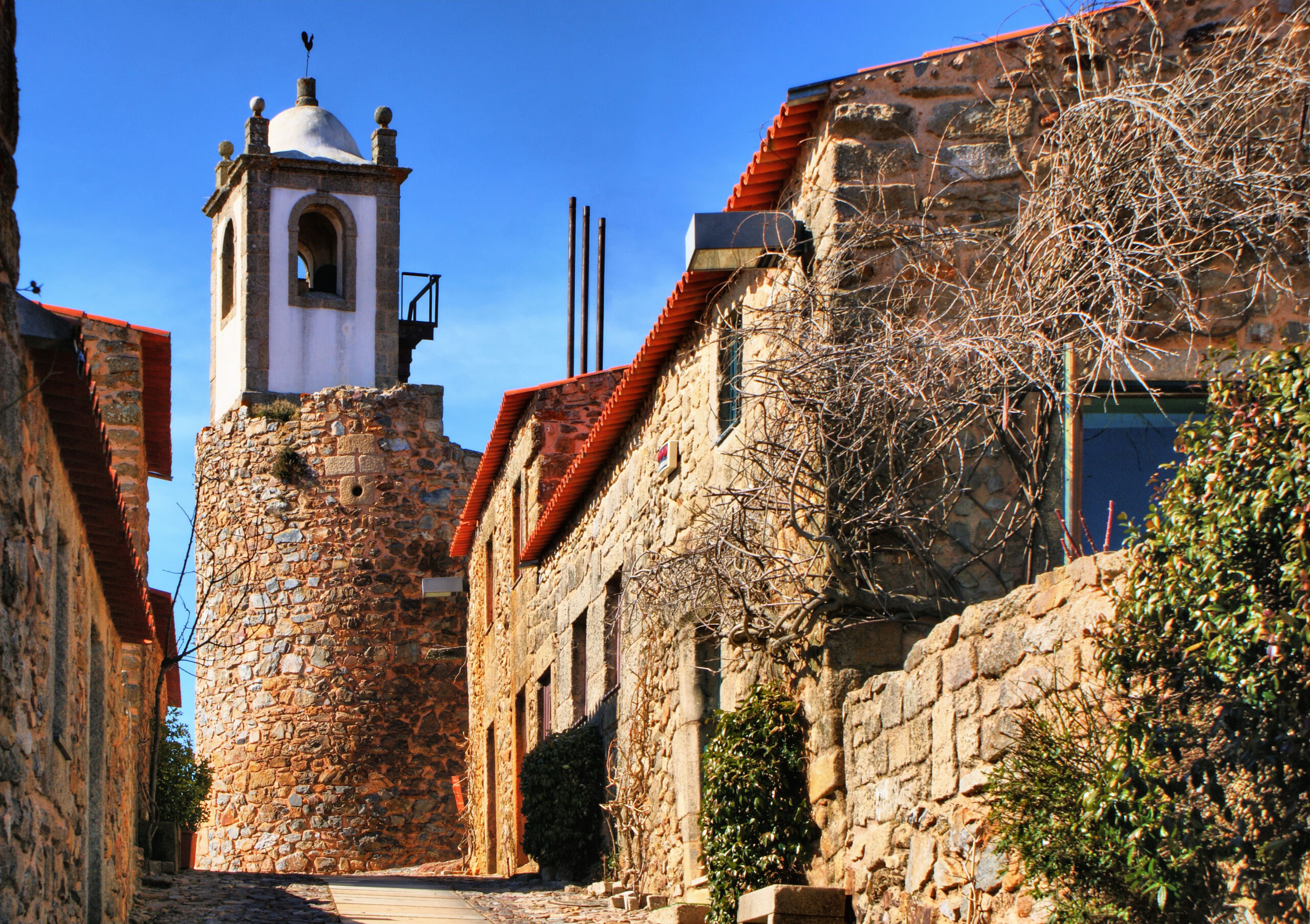
Local Customs and Etiquette: What You Need to Know
The Portuguese people in the Douro are generally friendly and welcoming towards tourists, making it a great destination for couples looking to experience a new culture. Our social interactions on our trip were very positive, and we found that the locals were incredibly kind and generous.
Before passing through this special place, there are a few social norms and customs you should be aware of so that you can be as respectful as possible to the country and its people.
- Greetings: Gender roles play a big part in greetings. Men shake each other’s hands, while women greet men and other women with two kisses on each cheek. In a professional setting, women often greet with a handshake. If you remember one thing, remember this!
- Mealtimes: In Portugal, lunch is the biggest meal of the day and can last for hours. People often enjoy coffee after their meal and socialize for a while. Dinner is usually served later in the evening, around 8 PM. So don’t expect speedy service! Embrace the slower pace and savor your meals.
- Tipping: Tipping is not required but is appreciated. A good rule of thumb is to leave a 10% tip if you are happy with the service.
- Dress Code: The majority of the population in Portugal views clothes as a social status symbol. They take pride in their appearance and dress well, especially for special occasions. Now, this doesn’t mean they wear suits and ties. It’s more of an elegant, casual attire. You really don’t need to worry much about what you wear — just make sure to dress respectfully when visiting religious sites.
- PDA: I know you and your partner might have a hard time keeping your hands off each other in such a romantic place like the Douro Valley, but public displays of affection beyond holding hands, hugs, or a quick kiss on the cheek are not common in Portugal.
On our romantic getaway along the Douro River, we found ourselves greatly admiring the nonchalance and work-life balance of the Portuguese people. Embrace their slower pace, indulge in delicious meals and wine, and take time to truly enjoy!
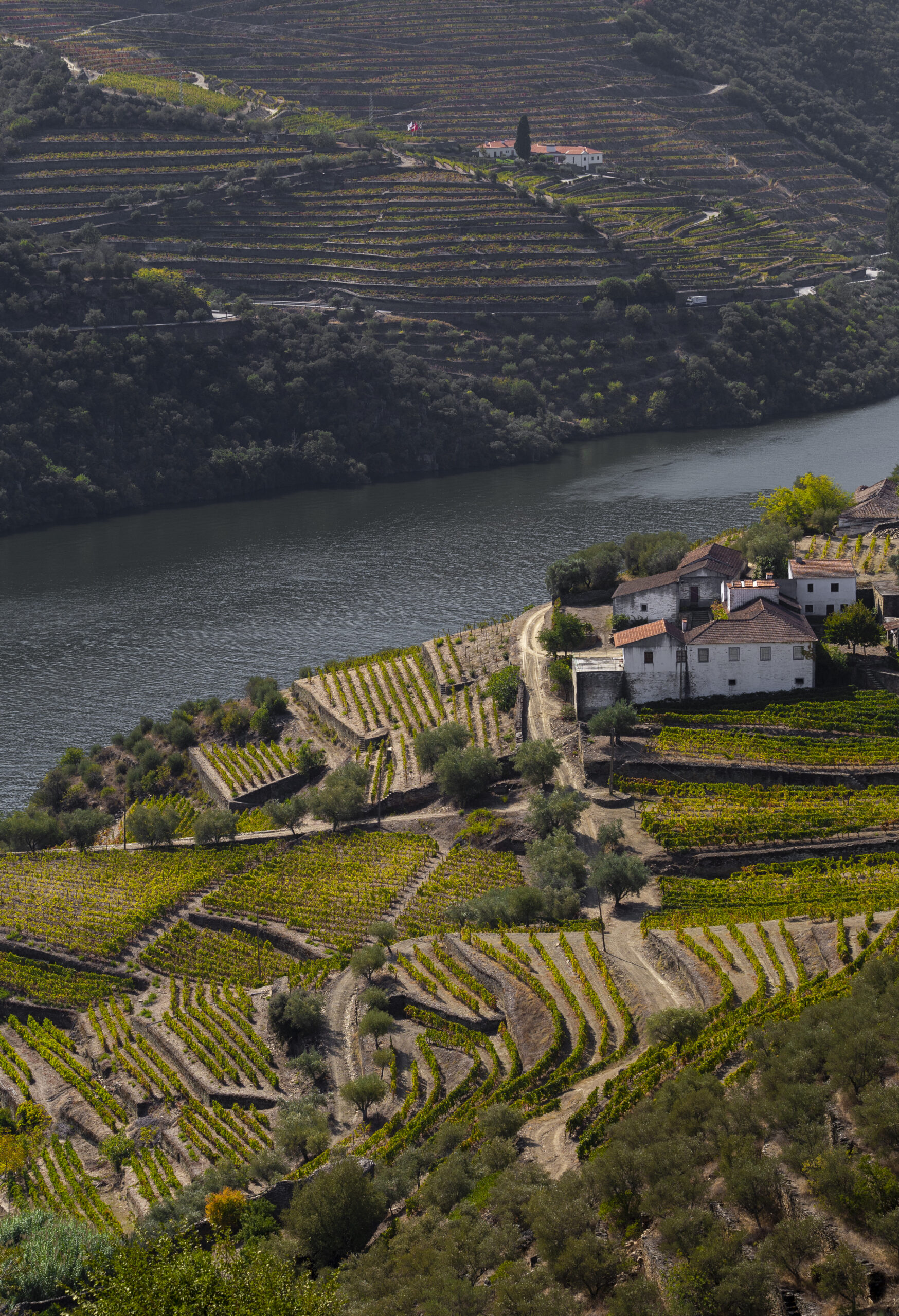
Useful Portuguese Phrases for Travelers
It’s always a good idea to learn some basic phrases in the local language when traveling to a foreign country. While English is widely spoken in Portugal, making an effort to communicate in Portuguese can go a long way and help you connect with the locals. Here are some useful phrases to get you started:
- Bom dia (bom dee-ah) – Good morning
- Boa tarde (bo-ah tar-deh) – Good afternoon
- Boa noite (bo-ah noyt) – Good evening/night
- Obrigado/a (ob-ree-gah-doh/dah) – Thank you (depending on your gender. O for men, A for women)
- Com licença (kom lee-sen-sah) – Excuse me
- Falas inglês? (fa-la in-gles) – Do you speak English?
- Quanto custa? (kwan-toh kos-tah) – How much does it cost?
- Onde é…? (ond-jeh eh) – Where is…?
- Por favor (por fa-vor) – Please
- Sim (sim) – Yes
- Não (naoum) – No
- Saúde! (sa-u-gi) – Cheers!
The Portuguese language can be challenging to pronounce, but don’t worry; the locals will appreciate your effort. And if all else fails, a smile and a friendly demeanor can go a long way in any language!
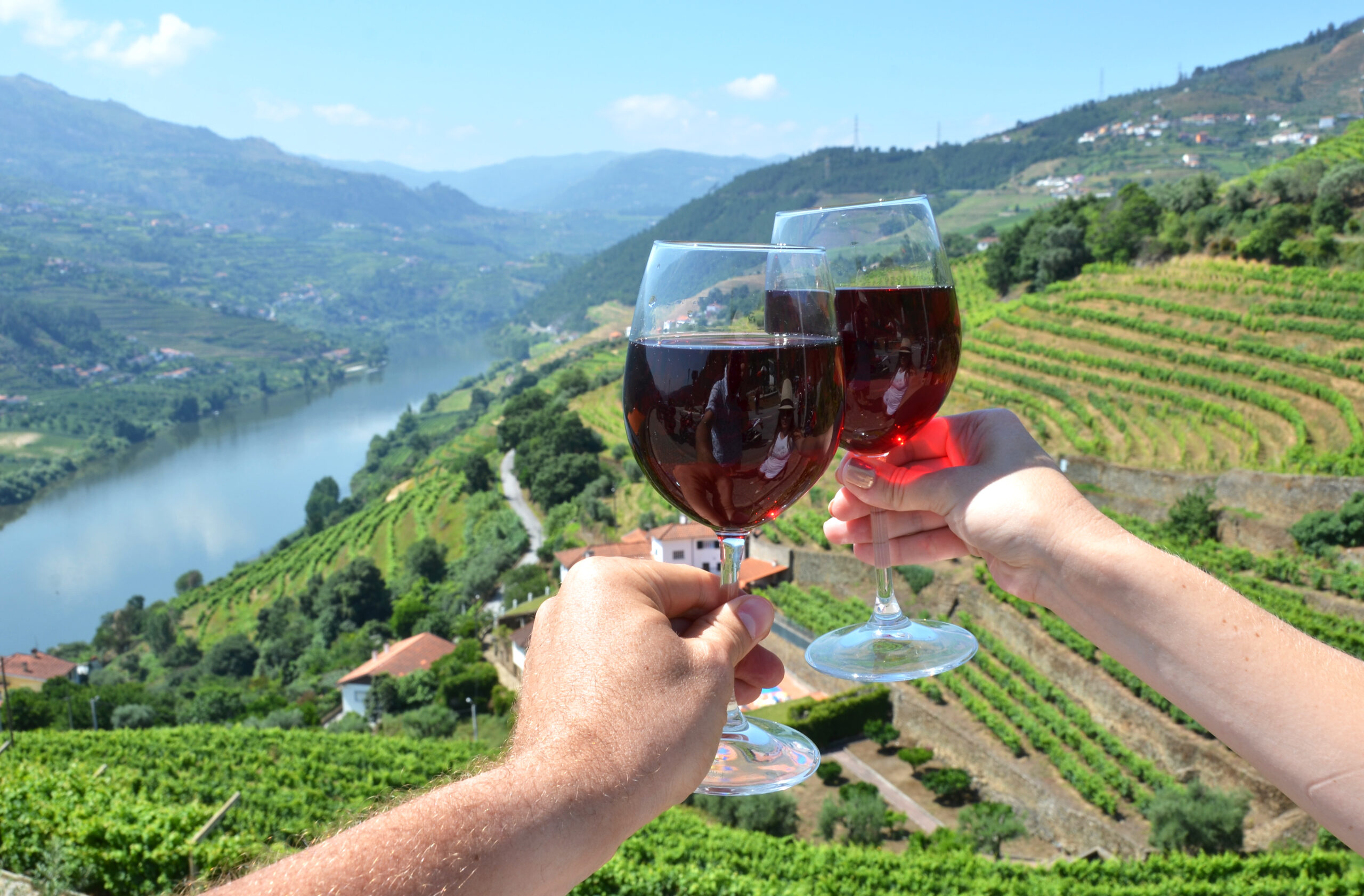
Ready to Explore the Douro Valley
And just like that, you’re ready to explore the stunning Douro Valley in Portugal! Now that you know about the Portuguese culture, history, customs, and language, all that is left to do is book your trip, pack your bags, and start planning your adventure.
So remember to immerse yourself in the local culture, practice proper etiquette, learn some basic Portuguese phrases, and, most importantly, have a great time exploring this beautiful region. Going on this amazing trip with confidence and respect for the local customs will only enhance your experience and make it one you and your love to always remember.
Boa viagem (have a good trip)!
Have you been to Douro Valley? Share your experience with us in the comments below. We would love to hear from you! And for more great insider tips on the most romantic weekend getaways, sign up for my newsletter!
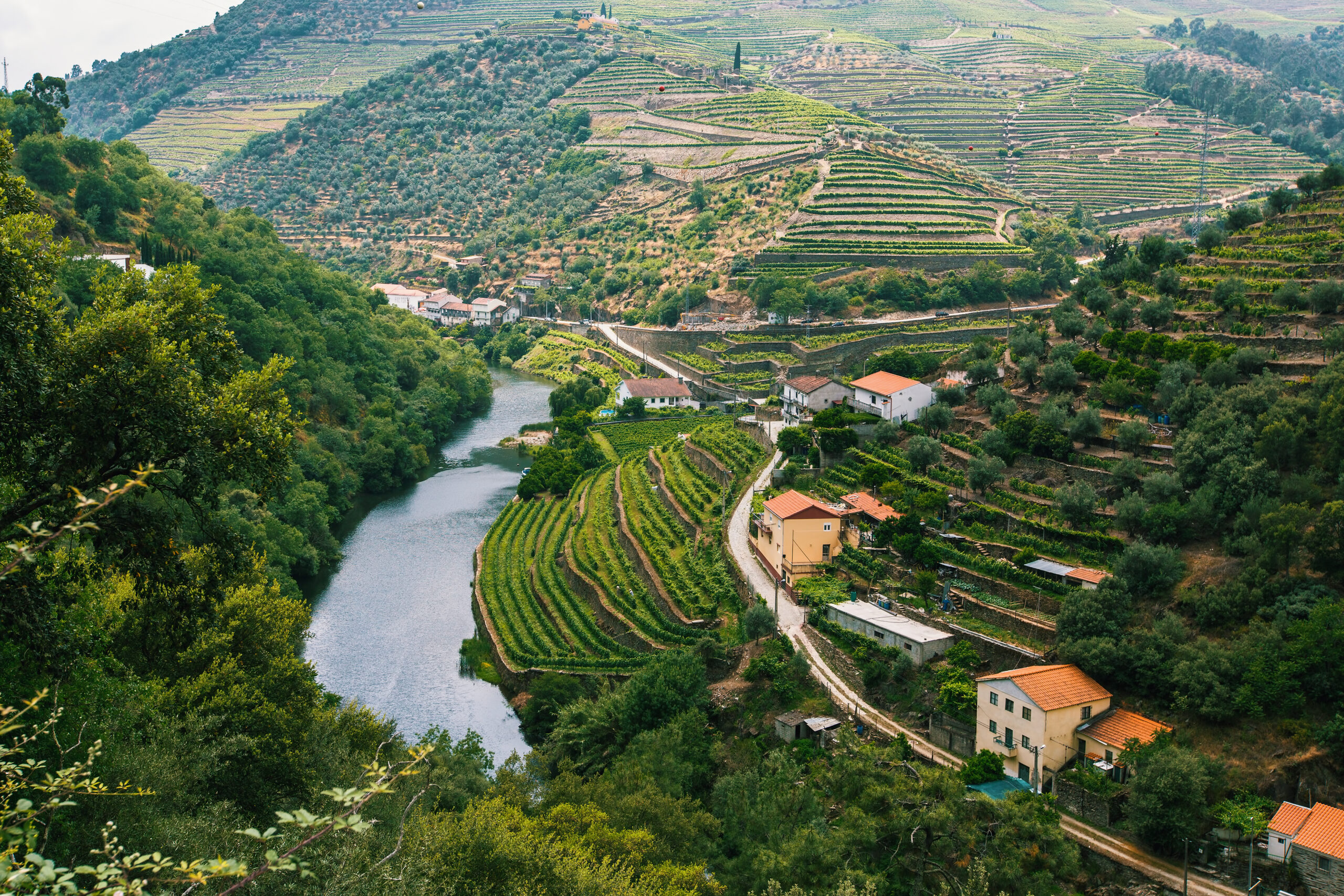
Frequently Asked Questions (FAQs)
What is the best time to visit the Douro Valley?
The best time to visit the Douro Valley is from May to September when the weather is warm and sunny, perfect for outdoor activities like hiking, biking, and river cruises.
However, if you want to avoid the crowds, consider visiting during the off-season in October and November. The Douro Valley often has mild winters, making it a great destination even in the colder months.
Is it necessary to know Portuguese to travel in the Douro Valley?
While it is not necessary to know Portuguese, knowing some basic phrases can greatly enhance your experience in the Douro Valley. It shows a level of respect for the local culture and people and can also make communication easier if you encounter locals who do not speak English.
Are credit cards widely accepted in the Douro Valley?
It depends on where you are in the Douro Valley. In larger cities and tourist areas, credit cards are widely accepted. However, in smaller towns and villages, cash may be the only form of payment accepted. It is always a good idea to have some cash on hand, especially when visiting more remote areas.
What are some must-try local dishes?
Some must-try dishes in the Douro Valley include:
– Bacalhau (salted cod fish): A staple in Portuguese cuisine, often served with potatoes, onions, and olives.
– Francesinha: A popular sandwich made with layers of ham, sausage, beef, steak, and covered in melted cheese and a spicy tomato sauce.
– Cozido à Portuguesa: A hearty stew made with various types of meat and vegetables.
– Ameijoas à Bulhão Pato: Clams cooked in garlic, olive oil, white wine, and cilantro.
– Pastel de nata: A famous Portuguese custard tart that can be found all over the country.
– Vinho verde: A slightly fizzy, young wine that is perfect for sipping on a hot day.